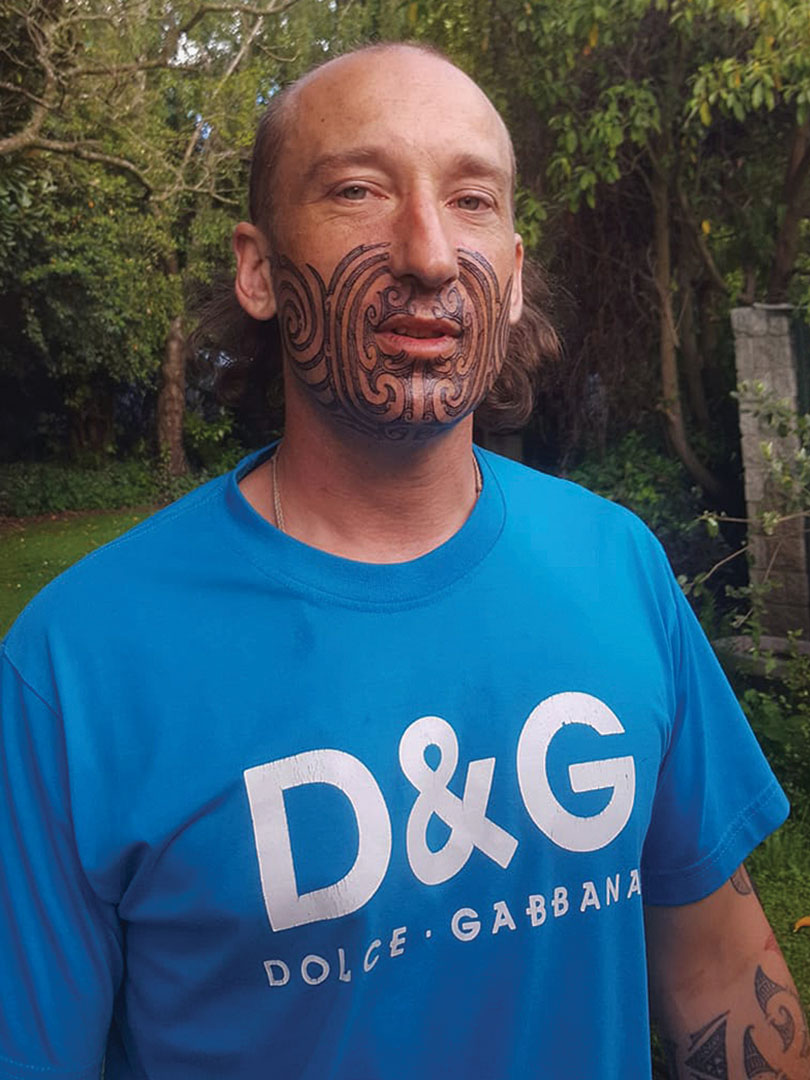He Tangata Caleb Robinson
Jun 29, 2021


Ko Aoraki te maunga Ariki
Ko Tūtoko te maunga tupuna
Ko Makaawhio te awa
Ko Uruao te waka
Ko Rākaihautū te tangata
Ko Ngāti Māhaki te hapū
Ko Poutini Ngāi Tahu te iwi
Ko Caleb Robinson tōku ingoa
I was born in Christchurch in 1984, but raised in Hokitika. I spent my adolescence between Levin and Wellington, before returning home to Westland in 2004. I worked in a fish and chip shop and sawmill, until I was given the chance to train in traditional wood carving under Ngāi Tahu master carver, FayneRobinson. I assisted in the construction and carving of the whare tupuna Tūhuruat Arahura marae. After this I worked for Ngāti Waewae as a carver for a short time before carving in Ōtautahi. In 2017, I started a new job working for my rūnangain Makaawhio as the marae maintenance and general marae guy. I currently reside in Makaawhio and look after our marae and urupā.
What constitutes a good day?
Waking up. Honestly, there was a time in life when this wasn’t the case, but now I really appreciate life and each day I get to share with my whānau.
One thing I couldn’t live without?
My kurī Jug. He’s my best mate and is always a happy ball of energy. He turns a dull day into an adventure and he’s always super happy to see me – or anyone for that matter. He keeps me sane.
Who or what inspires me?
Our kaumātua – mainly our fierce taua and aunties. I grew up surrounded by strong, determined women who worked tirelessly for the betterment of our people as a whole and often at their own cost. It’s those selfless kaumātua who really inspire me and remind me what it’s all about.
Highlight in the last year?
Recently I was lucky enough to take part in Te Ara Whakatipu, a wānanga focused on connecting young Ngāi Tahu to their whenua and Tahutanga. I was part of the first wānanga into the Hollyford in 2009 with amazing facilitators such as Aunty Ranui Ngarimu, Eruera Tarena and Susan Wallace. This year on the hīkoi my eyes were opened to the impact the wānanga has had on many of our rangatahi and how life-changing the connections they made on the wānanga have been for them. I came home feeling motivated with a new sense of energy and focus.
What’s my one extravagance?
I don’t live a very extravagant life. However, I really enjoy dressing up in a suit for any occasion. You will often see me in the bush on a kiwi release, or riding my quad on the beach, in a full suit in some outrageous colour. I have collected a few suits and have impulse-purchased several.
What’s my Favourite way to chill out?
Hit the river. I’m lucky enough to be born into Poutini Ngāi Tahu. I grew up on the rivers here in Te Tai Poutini, looking for pounamu, and there is nothing I enjoy more on this Earth than walking up a river with Jug and my cousins in search of the elusive greenstone.
Dance or wallflower?
Dance – definitely dance, and like no-one is watching too. I’m that nephew that goes and gets all the aunties up for a dance. I love seeing smiles on people’s faces and dancing always makes people smile or laugh. I have no shame – so laugh.
What food could I not live without?
Eggs. I eat a lot of eggs – fried, poached, boiled. I smash a tray of eggs a week. Definitely not my favourite food – that’s tītī – but eggs are my go-to if I’m hungry, for sure.
What meal do I cook the most?
A roast. You can’t beat a good roast.
Greatest achievement?
This is a really hard question to answer. I have been so lucky in life to get where I am and to have been a part of some amazing projects. I feel like it’s a privilege for me to live the life I do. One real highlight for me was the opening of the whare tupuna Tūhuru at Arahura in 2014, running out onto the ātea with Karara Kōpae a Tūhaitara and standing side by side with our wāhine for the mata take (wero).
Do I have an aspiration for Ngāi Tahu?
Wow – how not to sound political in this question. My aspiration is that our iwi becomes stronger culturally. I grew up in a generation trying to reclaim their identity and culture. I hope our moko, and their moko, don’t have to know the shame of not knowing something like we did. I hope that our moko don’t have to mourn what we have lost, and that they can stand here, on this island, confident in who they are as Tahu.